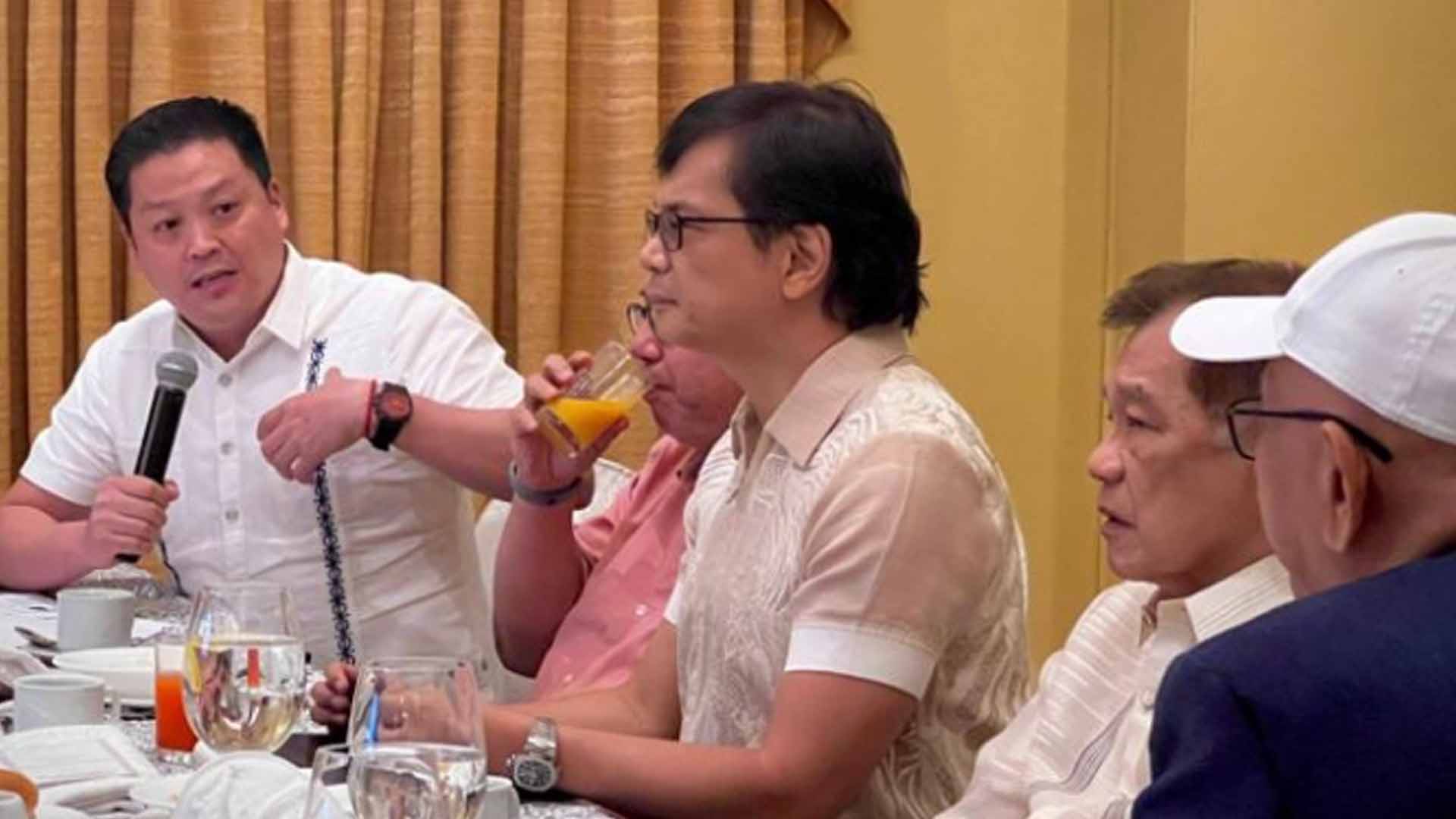The Department of Social Welfare and Development (DSWD) and the Children’s First One Thousand Days Coalition (CFDC) are planning to roll out a nationwide nutrition intervention program that seeks to address malnutrition and stunting among Filipino children up to 3 years of age.
DSWD Secretary Rex Gatchalian discussed the program during his meeting with CFDC chief Joey Lina on Tuesday at the Cafe Ilang-Ilang of The Manila Hotel.
The meeting, initiated by the CFDC, a non-government organization, was also attended by Department of the Interior and Local Government (DILG) Secretary Benhur Abalos and Department of Health (DOH) Secretary Teodoro Herbosa.
Gatchalian initially cited the community-driven approach in addressing malnutrition in the First 1000 days of infants through nutrition specific and nutrition sensitive programs.
He emphasized the importance of collaborative efforts among government agencies, specifically the DSWD, DILG, DOH, and the private sector for the nutrition intervention program.
He said the Philippine Multi-Sectoral Nutrition Project (PMNP), Food Stamp Program (FSP) and Pantawid Pamilyang Pilipino Program (4Ps) are among the DSWD programs designed to help address malnutrition and stunting among Filipino children.
The FSP, he said, is the newest addition to the Marcos administration’s anti-hunger program, which includes single-parents as well as pregnant and lactating mothers as among the beneficiaries.
He said the Asian Development Bank will provide USD3 million (PHP166.77 million) for the six-month pilot run of the FSP in five areas, including the Bangsamoro Autonomous Region in Muslim Mindanao categorized as a former conflict area.
Other areas are one each in geographically isolated regions or provinces, in an urban poor setting, in calamity-stricken areas, and in a rural poor area.
Lina, a former senator and former Laguna governor, expressed his gratitude to the DSWD for its significant contribution to “fostering a healthier and productive generation of Filipino citizens.”
Gatchalian was joined DSWD Undersecretary for Innovations Eduardo Punay, Assistant Secretary for Legislative Affairs Irene Dumlao, and Director Bernadette Aquino-Mapue Joaquin, head of the Kapit-Bisig Laban sa Kahirapan-Comprehensive and Integrated Delivery of Social Services-National Program Management Office.
Converging programs to fight stunting
Gatchalian also called on members of the Inter-Agency Task Force on Zero Hunger (IATF-ZH) to continue converging its programs and services to fight stunting.
He said convergence of the IATF-ZH members, other national government agencies, the private sector, and development partners will make sure that the country’s commitments to end hunger, ensure food security and address stunting among Filipino children are properly undertaken.
“As our ways forward, let us continue to converge our programs and services into a coalition to fight stunting,” Gatchalian said as he presided over the first regular meeting of the IATF-ZH as its newly-designated chairperson at DSWD Central Office in Quezon City.
He reiterated the directive of President Ferdinand R. Marcos Jr. to ensure that the IATF-ZH is focused on addressing stunting and malnutrition in the first 1,000 days or from the phase of infancy up to the child’s 3rd year, through nutrition-specific and nutrition-sensitive programs.
President Marcos issued Executive Order No. 27 series of 2023, designating the DSWD Secretary as the Chairperson of the IATF-ZH.
Also present at the meeting were IATF-ZH co-chairperson, Assistant Secretary Milana Dayanghirang, who is also executive director of the National Nutrition Council (NNC), and vice-chairperson Senior Undersecretary Domingo Panganiban of the Department of Agriculture (DA).
Gatchalian presented during the meeting the IATF’s nutrition continuity plan, which includes the ongoing and new programs of the DSWD to mitigate hunger and to help in the First 1,000 Days campaign.
He made special mention of the Philippine Multi-Sectoral Nutrition Project, which aims to increase the simultaneous utilization of a package of nutrition-specific and nutrition-sensitive interventions and improve the key behaviors and practices known to reduce stunting in targeted local government units (LGUs).
He also cited the Walang Gutom 2027, a program that will provide assistance, in the form of digital stamps worth PHP3,000 food credits, to food-poor Filipino families and vulnerable sectors, including pregnant and lactating mothers.
The DSWD chief also referred to the Pantawid Pamilyang Pilipino Program (4Ps) as an early childhood care and development intervention with beneficiaries needing to comply with the condition of bringing their children to health centers for regular check-ups.
Gatchalian directed the IATF members to include their existing programs in the nutrition continuity plan to ensure collective efforts in addressing stunting among children.
“Independently, alam ko na may ginagawa kayong lahat (I know that all of you are doing something). Remember, the task force’s main purpose is to work together, to tie all our programs together into a whole-of-a-nation approach. And this is what the President wants us to do,” Gatchalian said.
Members of the recalibrated IATF-ZH include the secretaries of the budget and management, education, environment, labor, trade and industry, and science and technology; chairperson of the Commission on Higher Education, as well as a representative from the Office of the President.
The recalibrated IATF is divided into six Key Result Areas (KRAs), with the DSWD as lead member in KRA 1-Review and rationalization of existing policies rules, regulations related to the executive order.
Lead members of KRA 2 – Ensure available and affordable food; KRA 3 – Secure available adequacy; KRA 4 – Secure food and accessibility and safety; KRA 5 – Ensure resiliency and food stability emergencies; and KRA 6 – Ensure information, education, awareness, and people participation also presented their accomplishments. (PNA)




















